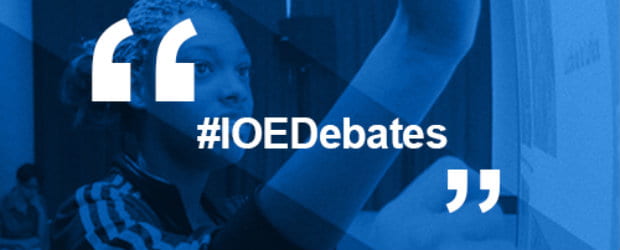‘How do you assess that people have become more tolerant?’ and other challenges of teaching ‘difficult’ histories
By Blog Editor, IOE Digital, on 25 May 2022

OLYMPUS DIGITAL CAMERA
Mary Richardson, Becky Hale, Tom Haward and Kwaku Adjepong.
We concluded our Holocaust Memorial Day blog about teaching ‘difficult’ histories with the proposition: ‘We could assess these kinds of knowledge, but is it appropriate to do so?’ Since then, we have been exploring this idea further.
Our current focus on assessing how students understand and learn about ‘difficult histories’ arose from research (2019-20), led by the UCL Centre for Holocaust Education,to explore teaching about the Holocaust in English secondary schools, which surveyed more than 1,000 teachers. The original study was not about assessment, but we found that teachers were keen to explore ways to reflect on their teaching and their students’ experiences of learning about the Holocaust. However, some noted that care is necessary when considering how assessment could happen, as this interviewee stated:
…we need to give them the emotional space to actually realise what the topic’s about, and the impact it has on people, and I think if we start bolting on assessments to it we lose some of that ability for them to actually self-reflect. (more…)
 Close
Close






